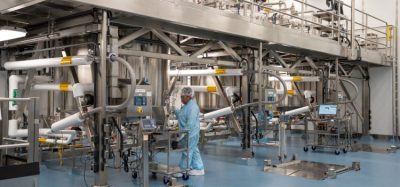Accelerating AMR vaccine development
Posted: 1 November 2023 | Dr Neil Murray (ReNewVax) | No comments yet
Dr Neil Murray, Chief Executive of ReNewVax, explores the importance of new bacterial vaccines in the context of antimicrobial resistance and examines how the principle of reverse vaccinology could help to create more accessible and cost-effective vaccines.


In July 2022, the World Health Organization (WHO) released its inaugural report on the pipeline of vaccines currently in development to prevent infections caused by antimicrobial resistance (AMR) bacterial pathogens.1
WHO’s analysis was stark. It asserted the need to accelerate trials for AMR-related vaccines in late‑stage development and maximise the use of those already on the market.
WHO referred to 61 bacterial vaccine candidates in diverse stages of clinical development. While the late-stage vaccine candidates listed in the report were described as having a high development feasibility, the report noted that most will not be available any time soon.1
I believe it is therefore incumbent upon those of us working in vaccine development to confound this expectation.
WHO referred to 61 bacterial vaccine candidates in diverse stages of clinical development
Prior to COVID-19, Streptococcus pneumoniae (also known as the pneumococcus) represented the biggest vaccine market in the world.2
And for good reason – this is a disease which kills more children under the age of five than measles, malaria and HIV-AIDS combined. It is one of the leading causes of death associated with AMR globally.3
In the immediate turmoil of the pandemic, it was not surprising that pneumococcus and AMR took a backseat in the rush to find a vaccine for COVID-19.
However, now that researchers, investors and governments have seen how the vaccines created for COVID-19 have allowed large parts of the world to start moving again, it is vital we leverage this impetus to expedite the vaccines that the AMR crisis so badly needs.
The threat of AMR continues to accelerate, spurred by the overuse and misuse of antibiotics.
Bacterial vaccines: challenges and opportunities
Bacterial vaccines have the potential to be a key component in fighting AMR. The great benefit of vaccines is that they are a proactive approach to disease prevention, compared to the reactive use of antibiotics. Additionally, by reducing disease levels, you reduce the need for antibiotics, which slows the evolution of antibiotic-resistant bacteria.
Historically, the development of bacterial vaccines has been challenging; it is not practical to develop a vaccine against each individual pathogen nor to vaccinate everyone against everything. However, for key pathogens, which carry a high disease burden and play a key part in the development of AMR, vaccines can be a critical tool. Slowing the development of resistance in just one class of bacteria increases the useful life of broad-spectrum antibiotics.
In particular, vaccines could be a way forward in treating gram-negative infections, where developing small molecule antibiotics has been challenging.4
Another important consideration in the development of bacterial vaccines is cost. Many existing bacterial vaccines rely on expensive conjugation technologies in their manufacture; consequently routine vaccination largely remains beyond the reach of low- and middle-income countries, where AMR is prevalent.5
However, there are potential cost advantages to rationally designed protein-based vaccines developed using reverse vaccinology. These vaccines are cheaper to manufacture, and could potentially be more accessible in developing countries.
Reverse vaccinology
Our strategy at ReNewVax is based on the principle of reverse vaccinology, employing rational design in lieu of the classical hypothesis-led approach, which carries substantial risk until clinical evidence is generated. Analysis of large databases of clinical samples enables us to identify protein antigens with potential to form the basis of an effective vaccine.
unlike COVID-19, [AMR] is advancing with stealth and action must be taken before it is too late
In addition to the normal range of efficacy and safety studies, our approach is then further de-risked by including ex vivo human cell testing to confirm the immunologic properties of our vaccines before they are tested in clinic, increasing the likelihood of clinical success.
Using this approach, our lead programme – RVX 001, a protein-based vaccine against invasive pneumococcal disease – has been designed with antigens common to all pneumococcus serotypes. This makes RVX-001, potentially, the first universal pneumococcal vaccine – a key step forward in the immunisation strategy against this critical pathogen.
We look forward to taking our programme through to late-stage development as trials progress. Yet clinical trial costs for late-stage vaccines are high and more can be done to adapt trial designs to alleviate these costs.
There have been several previous failed attempts at developing a universal pneumococcal vaccine associated with late-stage termination of clinical trials, incurring significant costs, both financially and in human resource.6 Most recently, the development of a whole cell-based vaccine was abandoned on the basis of reports showing unacceptably high reactogenicity in young children.7 ReNewVax’s development pipeline is significantly differentiated from any previous or existing pneumococcal programmes in that we have used a rational rather than a hypothesis-led approach.
While regulatory support, such as breakthrough therapy designations, can help in this regard, there is a critical need to collaborate with regulatory agencies to agree efficient clinical trial designs that maintain appropriate demonstration of safety and efficacy.
AMR has the potential to be just as devastating for the world as COVID-19. However, unlike COVID-19, it is advancing with stealth and action must be taken before it is too late. We believe the development of bacterial vaccines can be a key weapon in the fight against AMR.
If it were necessary, the pandemic has reminded us of the incredible power of vaccines as we are able to go about our day-to-day lives after years of disruption. It is imperative that our industry does not waste this vital opportunity and capitalises on advances made in vaccine technology to prevent AMR spiralling further into a crisis that could debilitate our lives once again.
About the author
Neil Murray, PhD is Chief Executive Officer of ReNewVax. He is an experienced biotech and technology industry executive with international experience in drug development, data science, sales and marketing, and business management.
References
- World Health Organization. Bacterial vaccines in clinical and preclinical development 2021 [Internet]. 2022 [cited May2023]. Available from: https://www.who.int/publications/i/item/29789240052451
- Mordor Intelligence. Pneumococcal Vaccines Market Size & Share Analysis – Growth Trends & Forecasts 2023-2028. 2022 [cited May2023], Available from: https://www.mordorintelligence.com/industry-reports/pneumococcal-vaccines-market
- Murray CJ, Ikuta KS, Sharara F, et al. Global burden of bacterial antimicrobial resistance in 2019: A systematic analysis. The Lancet. 2022; 399(10325): 629–55.
- Broad J, Le Doare K, Heath PT, et al. The current state of immunization against Gram-negative bacteria in children: a review of the literature. Curr Opin Infect Dis. 2020 Dec; 33(6): 517-529.
- Chen C, Cervero Liceras F, Flasche S, et al. Effect and cost-effectiveness of pneumococcal conjugate vaccination: a global modelling analysis. Lancet Glob Health. 2019 Jan; 7(1): e58-e67.
- Hammitt LL, Campbell JC, Borys D, et al. Efficacy, safety and immunogenicity of a pneumococcal protein-based vaccine co-administered with 13-valent pneumococcal conjugate vaccine against Acute Otitis Media in young children: A phase iib randomized study. Vaccine. 2019;37(51):7482–92.
- Morais V, Texeira E, Suarez N. Next-Generation Whole-Cell Pneumococcal Vaccine. Vaccines (Basel). 2019 Oct 16;7(4):151.









